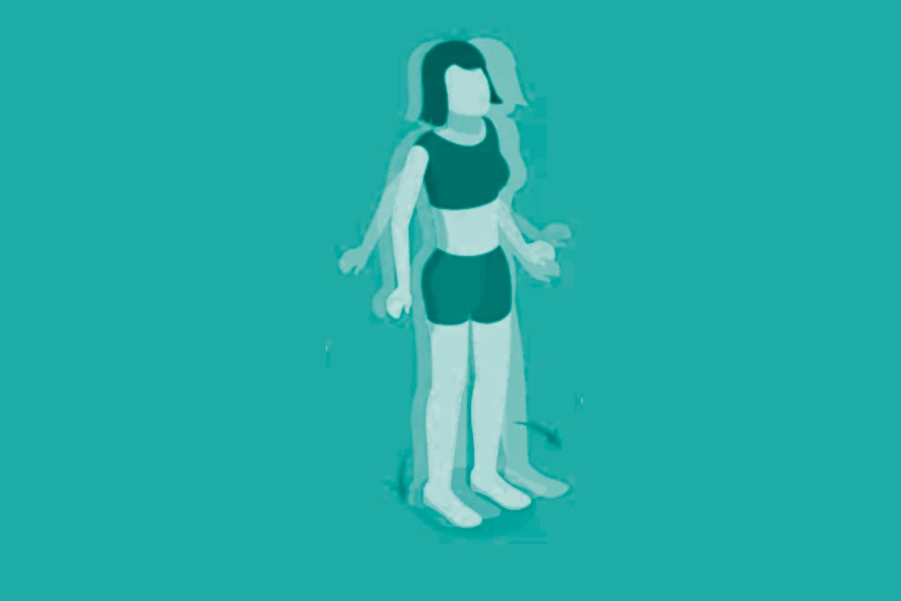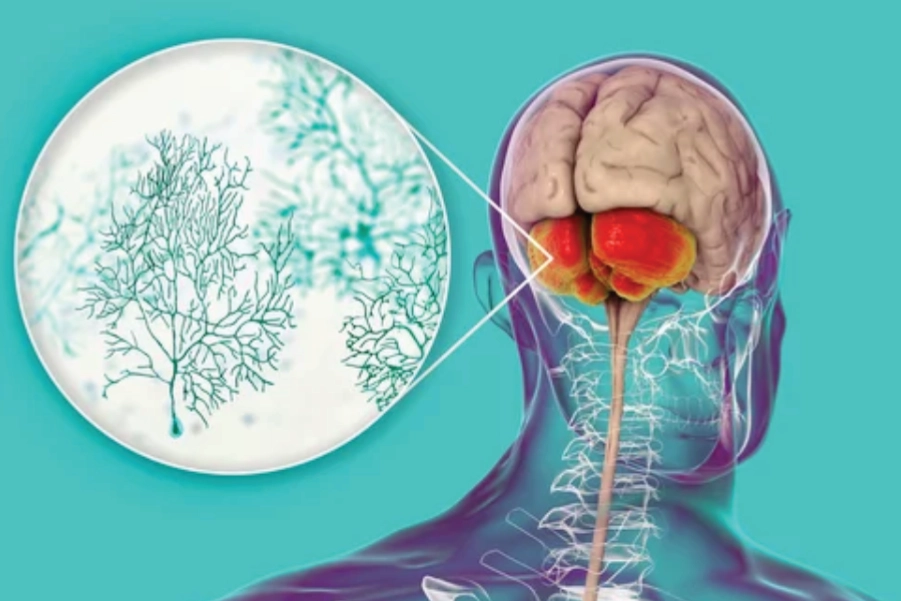Best Physiotherapy for coordination problems You Can Trust
Trust “Best Physiotherapy for Coordination Problems” for tailored rehabilitation, integrating evidence-based techniques to maximize recovery and restore independence. Our compassionate care and dedicated support aim to guide people affected by Coordination Problems towards improved mobility and quality of life.
Best Coordination Problems physiotherapy Doctors in Delhi, India

Physiotherapy for Coordination Problems
Coordination Problems Physiotherapy in Delhi
Physiotherapy for coordination problems involves tailored exercises, sensory integration techniques, and motor coordination drills to improve balance, proprioception, and movement control. Gait training, functional activities, and coordination exercises are utilized to enhance overall coordination and functional independence.
What is Coordination Problems
Coordination problems refer to difficulties in effectively controlling movement, often resulting in unsteady gait, clumsiness, and difficulty performing tasks that require precise motor control. These issues can arise from various factors, including neurological conditions, musculoskeletal impairments, or sensory deficits. Coordination problems can significantly impact daily activities and may require rehabilitation interventions to improve function and mobility.
Causes of Coordination Problems
Coordination problems can stem from various factors, including:
NEUROLOGICAL CONDITIONS:
Disorders affecting the brain or nervous system, such as stroke, traumatic brain injury, multiple sclerosis, or Parkinson’s disease, can impair coordination.
MUSCULOSKELETAL ISSUES:
Conditions affecting muscles, joints, or bones, such as arthritis, muscle weakness, or orthopedic injuries, may disrupt coordination.
SENSORY DEFICITS:
Impairments in vision, proprioception (sense of body position), or vestibular function (balance system in the inner ear) can lead to coordination difficulties.
DEVELOPMENTAL DISORDERS:
Conditions like cerebral palsy or developmental coordination disorder can affect coordination from an early age.
MEDICATIONS OR SUBSTANCES:
Certain medications or substances may cause dizziness, sedation, or impaired motor function, contributing to coordination problems.
GENETIC FACTORS I AUTOIMMUNE RESPONSE I ENVIRONMENTAL TRIGGERS I INFECTIOUS AGENTS I IMMUNE SYSTEM DYSREGULATION I NEURODEGENERATIVE PROCESSES

Treatment of Coordination Problems
Treatment of coordination problems typically involves a multidisciplinary approach tailored to the underlying cause and individual needs. Here's an overview:
COMPREHENSIVE ASSESSMENT:
A thorough evaluation by healthcare professionals, including physiotherapists, occupational therapists, and neurologists, is essential to identify the root cause of coordination difficulties.
PHYSIOTHERAPY:
Physiotherapists develop customized exercise programs focusing on improving strength, flexibility, balance, and coordination. Specific exercises may include proprioceptive training, balance exercises, and coordination drills to enhance motor control and functional abilities.
OCCUPATIONAL THERAPY:
Occupational therapists focus on improving activities of daily living (ADL) and fine motor skills. They may recommend adaptive equipment and techniques to make daily tasks more manageable and promote independence.
SPEECH THERAPY:
For coordination problems affecting speech and swallowing, speech therapists provide targeted exercises to improve articulation, voice control, and swallowing function.
MEDICATION MANAGEMENT:
In some cases, medications may be prescribed to manage underlying conditions contributing to coordination problems, such as muscle relaxants for spasticity or medications to address neurological conditions like multiple sclerosis or Parkinson's disease.
COGNITIVE REHABILITATION:
Cognitive training programs may be beneficial for individuals with coordination difficulties related to cognitive impairments. These programs focus on improving attention, memory, and executive function skills.
TECHNOLOGY-ASSISTED INTERVENTIONS:
Advancements in technology, such as virtual reality and gaming-based therapies, offer innovative approaches to rehabilitation. These interventions can enhance engagement, motivation, and outcomes by providing interactive and engaging exercises to improve coordination.
PSYCHOTHERAPY AND COUNSELING:
Psychological support may be beneficial for individuals experiencing emotional distress or frustration due to coordination problems. Counseling can help individuals cope with the challenges of living with coordination difficulties and develop strategies to improve self-esteem and quality of life.
LIFESTYLE MODIFICATIONS:
Making adjustments to the home environment and daily routines can help minimize the impact of coordination problems. This may include removing hazards, organizing the living space for better accessibility, and implementing strategies to conserve energy and reduce fatigue.
Overall, a comprehensive treatment approach combining various therapeutic modalities, medication management, and supportive interventions is essential for effectively addressing coordination problems and improving functional outcomes and quality of life.
Physiotherapy Treatment for Coordination Problems
Physiotherapy for coordination problems involves tailored interventions to improve strength, balance, and proprioception. Techniques such as coordination drills, sensory integration exercises, and gait training are utilized to enhance motor control and functional abilities, aiming to optimize coordination and overall movement efficiency.
Technology and recent advances in physiotherapy for coordination problems encompass wearable sensors, virtual reality systems, and robotic-assisted devices. These innovations offer personalized and interactive interventions, enhancing engagement and outcomes in rehabilitation programs, while telehealth platforms enable remote monitoring and delivery of therapy, expanding access to care.
When to Start Physiotherapy For Coordination Problems
Physiotherapy for coordination problems should commence promptly after diagnosis to address symptoms and optimize functional abilities. Early intervention aims to improve strength, balance, and motor control, minimizing disability and enhancing overall quality of life.
Physiotherapy & Rehabilitation For Coordination Problems
Multiple sclerosis (MS) rehabilitation typically includes a multidisciplinary approach involving various healthcare professionals. Components may include:
Coordination problems can significantly impact daily life, making simple tasks challenging. Physiotherapy and rehabilitation play crucial roles in addressing these issues and improving overall function. Here’s how:
ASSESSMENT AND INDIVIDUALIZED PLAN:
A comprehensive assessment by a physiotherapist helps identify specific coordination deficits and their underlying causes. Based on this assessment, a personalized treatment plan is developed to target areas of weakness and improve coordination.
BALANCE AND COORDINATION EXERCISES:
Physiotherapists prescribe exercises designed to enhance balance, proprioception, and coordination. These may include activities such as standing on one leg, walking heel-to-toe, or using balance boards to challenge stability and motor control.
STRENGTH TRAINING:
Strengthening exercises focus on improving muscle strength and endurance, particularly in the core, lower limbs, and upper limbs. Strengthening these muscles helps support better posture and movement control, contributing to improved coordination.
GAIT TRAINING:
For individuals with walking difficulties, gait training aims to improve walking patterns, stride length, and overall mobility. Techniques may include practicing proper heel-to-toe walking and using assistive devices like walkers or canes if needed.
FUNCTIONAL ACTIVITIES:
Rehabilitation programs incorporate functional activities relevant to daily life, such as reaching, grasping, and manipulation tasks. Practicing these activities in therapy helps individuals improve coordination and regain independence in everyday tasks.
PROPRIOCEPTIVE TRAINING:
Proprioception, or the body’s awareness of its position in space, is essential for coordination. Proprioceptive training exercises help individuals improve their sense of body position and movement, enhancing coordination and motor control.
TECHNOLOGY-ASSISTED INTERVENTIONS:
Innovative technologies such as virtual reality and gaming-based therapies offer engaging ways to improve coordination. These interactive interventions provide feedback and challenges to enhance motor skills and coordination.
EDUCATION AND SELF-MANAGEMENT:
Physiotherapists educate individuals about their condition, teaching strategies to manage symptoms and prevent falls or injuries. This may include tips on safe movement patterns, home exercises, and environmental modifications.
PROGRESS MONITORING AND ADJUSTMENT:
Throughout the rehabilitation process, progress is closely monitored, and treatment plans are adjusted as needed to ensure optimal outcomes. Physiotherapists regularly reassess coordination abilities and modify interventions accordingly.
By addressing coordination problems through physiotherapy and rehabilitation, individuals can experience significant improvements in mobility, function, and overall quality of life. The multidisciplinary approach focuses on addressing underlying impairments, enhancing motor skills, and empowering individuals to regain independence in daily activities.
Our Treatment Process
Committed To Keep People Healthy & Safe
Our treatment process begins with a thorough assessment, followed by the creation of a personalized plan tailored to your needs. Through active rehabilitation, incorporating various evidence-based techniques, we work to promote healing and improve function. Continuous support and guidance are provided to ensure long-term success.
We start by having a thorough conversation with you about your medical history and any issues you’re experiencing. This helps us understand your unique situation.
We use state-of-the-art software and technology to analyze how your body moves and functions. This gives us a detailed picture of what might be causing your discomfort.
Based on what we find during the assessment, we create a personalized plan just for you. Our goal is to help you achieve specific outcomes, whether it’s reducing pain, improving mobility, or something else.
During your sessions with us, we use a combination of advanced technology and hands-on techniques to address your needs. This might include using special equipment or providing manual therapy to target problem areas.
We keep a close eye on how you’re doing throughout your treatment. By regularly checking your progress, we can make sure you’re on the right track and make any necessary adjustments to your plan.
Once you’ve made significant progress and reached your goals, we’ll guide you through a final session. Here, we’ll provide you with a customized digital exercise program that you can continue at home.
Even after your sessions with us are complete, we’re still here to support you. We offer virtual and online follow-up appointments to check in, answer any questions you may have, and provide ongoing guidance as needed.
At Best Physiotherapy Centre in Delhi for Coordination Problems, We Follow Best Practices
Why Choose Us
We offer personalized care, crafting customized treatment plans based on your unique needs and goals. With expertise in physiotherapy and a holistic approach to healing, our team ensures comprehensive care that addresses both physical and emotional aspects of recovery.
- Personalized Care
- Experienced Professionals
- Expertise & Best Practices
- Holistic Approach
- Latest Technology
Meet Dr. Dharam Pandey and Team
Leaders in Advanced Neurological Rehabilitation
At Dr. Dharam Pandey and Team, we are dedicated to revolutionizing Neurological Rehabilitation through cutting-edge technology, personalized care, and a commitment to delivering exceptional outcomes. Led by Dr. Dharam Pandey, a renowned expert in neurorehabilitation, our team is equipped with state-of-the-art facilities and staffed by highly qualified professionals. We specialize in outcome-based functional task training therapy, harnessing the power of advanced technology to optimize recovery for patients.
State-of-the-Art Facilities
Our facilities are equipped with the latest technology and amenities to create a conducive environment for rehabilitation and healing. From spacious therapy gyms to private treatment rooms, we prioritize comfort, safety, and accessibility for our patients.
EXPERTISE
Led by Dr. Dharam Pandey, our team comprises highly skilled professionals with extensive experience in stroke rehabilitation.
PERSONALIZED CARE
We believe in a patient-centered approach, tailoring treatment plans to address the individual needs and goals of each patient.
ADVANCED TECHNOLOGY
We harness the power of advanced technology to deliver innovative rehabilitation solutions and optimize outcomes.
COMPASSIONATE SUPPORT
We provide compassionate, supportive care every step of the way, empowering patients to achieve their full potential.
Best Physiotherapy FOR Coordination Problems
At Dr. Dharam Pandey and Team, we are committed to redefining the standard of care in neurological rehabilitation. With our expertise, state-of-the-art technology, and unwavering dedication to patient-centric care, we strive to inspire hope, restore function, and improve quality of life for head injury survivors. If you or a loved one is seeking specialized rehabilitation services, we invite you to experience the difference at Dr. Dharam Pandey and Team.
Call Today
+91-9818911195 +91-9818910029


